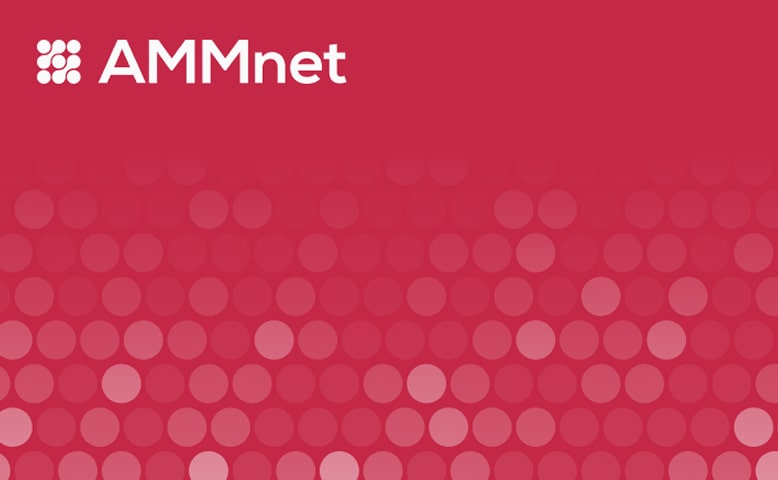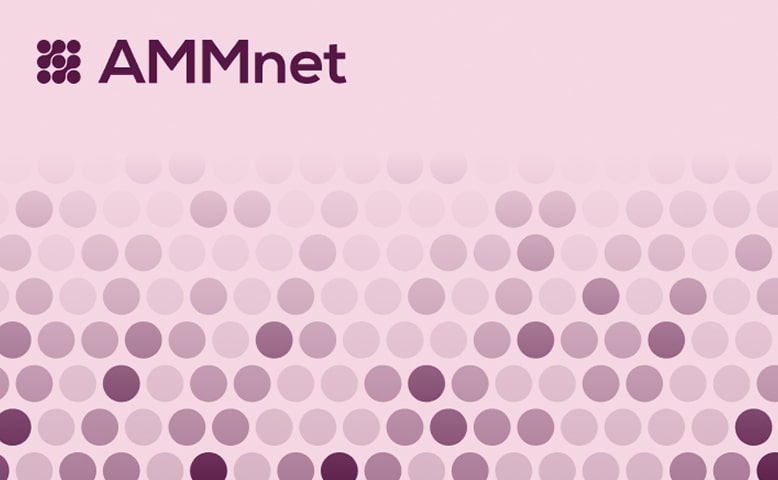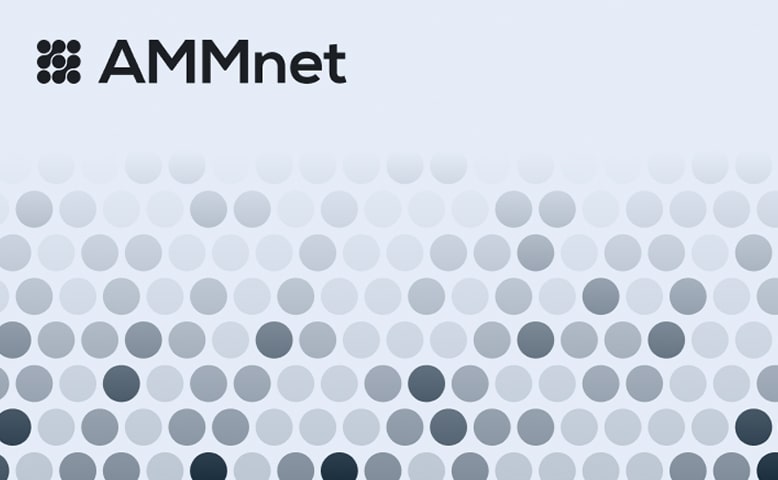Welcome to the August 2024 newsletter!
Please contact info@ammnet.org if you would like to contribute any items to next month’s newsletter.
Register for the next AMMnet Monthly Seminar | September 3, 15 hr UTC
Nigeria Malaria Modelling Fellowship
Speakers: Chijioke Kaduru and his fellows Nwadiuto Ojielo and Olasinde Ayodeji
Chijioke is a public health physician with over 15 years of experience in public health programme management, including working in low- and middle-income countries. As the Principal Investigator for the Nigeria Malaria Modelling Fellowship (MMF), his presentation will cover an overview of the fellowship, the lessons learnt so far, highlighting the key steps taken from inception to the current phase of the programme.
Nwadiuto is a public health physician with 14 years of experience in public health policy and research with strong skills in epidemiological and programme evaluation. She is a fellow of the Nigeria MMF, and her research focuses on Modelling the Effects and Cost-Effectiveness of IRS vs NextGen LLIN vs Standard LLIN in High-Risk Malaria Transmission Areas in Nigeria (Kebbi, Sokoto and Zamfara). In the face of insecticide resistance, Dr Ojielo is exploring the comparison between the use of novel insecticides in NextGen LLINs, IRS and LLINs and the cost implications.
Olasinde is a Medical Doctor with over 10 years of experience. He is currently a Senior Registrar in the Department of Community Medicine, Ahmadu Bello University Teaching Hospital, Nigeria. As a fellow of the Nigeria Malaria Modelling Fellowship, his research focuses on Modelling the Effects of Perennial Malaria Chemoprevention on Malaria Risk in Oyo and Rivers States, Nigeria. He will be highlighting the use of mathematical modelling to simulate the effects on PMC on the number of malaria cases in children in Oyo and Rivers States.
Real-time interpretation to French and Portuguese will be available.
Register for the September 3 Seminar Here
October 8 AMMnet Seminar
Guest speaker: Sam Jones, Medicines for Malaria Venture
Look for more details to come soon!
Call for AMMnet Seminar Speakers and Meet-the-Modelers
Are you interested in speaking at the monthly seminar series? Seminar speakers have the following options:
- 30-minute presentation about your work as a guest speaker
- 10- minute talk during a shared session with other AMMnet members
- 2-minute lightning introduction at a start of a seminar as a Meet-the Modeler
Send us an email at info@ammnet.org and let us know which type of presentation you would like to do along with your topic and AMMnet secretariat and the Connecting Committee will work with you to identify a seminar date that works best for you.
New! Social Media Posting Request Form
Share your AMMnet event or other malaria modeling topics on AMMnet's social media channels.
Complete the form here to submit your request and we'll post on our social media channels (Facebook, X, Linkedin).
Pour utiliser le formulaire de médias sociaux en français, veuillez cliquer ici.
Para utilizar o formulário português para as redes sociais, clique aqui.
Submit your Social Media Request Here
Join the AMMnet Slack Workspace
Join the AMMnet Slack Workspace and connect directly with members, get announcements, including job, funding, collaborative opportunities and information about upcoming events.
Jobs and Grant Opportunities
AMMnet Small Event Award
September 1 Deadline
Submit by September 1 to be considered for the next funding cycle.
Submissions received by September 1 will be evaluated by the review committee. The committee aims to choose 5 events for funding at each funding cycle.
AMMnet Funding Opportunity for Small Local Events:
AMMnet would like to encourage the growth of local chapters and is looking to support small local in-person events such as meetings, conferences, or workshops.
Thus far, we funded 28 AMMnet events in 15 countries! An awardee list is available here.
You may find guidelines and requirements for submission on the AMMnet website at the link here.
We especially encourage our francophone and lusophone members to apply, and we accept applications in English, French, or Portuguese.
Please do not hesitate to reach out to info@ammnet.org with any questions. We look forward to receiving your application!
Guidelines for Small Event Award Applications
NIH Notice of Special Interest in Systems Modeling of Infection and Immunity Across Biological Scales at NIAID
The purpose of this Notice of Special Interest (NOSI) is to announce that the National Institute of Allergy and Infectious Diseases (NIAID) is encouraging applications to advance research activities relevant to systems modeling of infection and immunity. Recipients will collaborate with the Center of Excellence (CoE) for Systems Modeling of Infection and Immunity across Biological Scales (U54 Clinical Trial Not Allowed) described in RFA-AI-23-077. The CoE will coordinate the program, working with NIAID, and set up collaborations with recipients to participate in CoE activities.
Multiple Job Opportunities at the Boni Lab, Institute for Genomics and Evolutionary Medicine (IGEM) at Temple University
Planning drug-resistance response for malaria in Africa
The Boni Lab has been working directly with a number of Africa National Malaria Control Programs on planning responses to the artemisinin-resistant malaria parasites that have recently begun circulating in East Africa. An example of this work is here.
This work is quickly expanding, as the risk assessment has moved from hypothetical to mid-level urgent for many countries over the past four years.
The Boni Lab has new job openings, at all levels, for aspiring and experienced mathematical modelers to join in this effort.
Senior Software Engineering Manager Position Available in Advanced Spatial Modeling at IDM
The Institute for Disease Modeling (IDM) at the Bill & Melinda Gates Foundation is looking for an an expert software engineering leader to manage a team of research software engineers.
This is a leadership role reporting to the IDM Deputy Director for Software, contributing directly to IDM's impact. The role calls for capable management of dedicated software engineers; high-quality partnership with peers in research management to make difficult trade-offs and priority decisions; and the ability to conceive, plan, and drive strategic vision in a research setting.
Success depends on excellent communication skills; on working transparently and flexibly with research managers; and on building deep understanding of the research and technology spaces IDM researchers work in.
You will contribute to decisions about software design and distribution to increase the impact of our modeling software as a global public good. This will involve sophisticated trade-offs over factors that influence the success of shared code. These could include the way code is written, its ease-of-use, run-time requirements, documentation content, and community engagement.
PhD Program | MIT Sloan
The System Dynamics group at MIT Sloan School of Management is seeking PhD applicants, with applications opening in September 2024. We are looking for quantitative modelers interested in working on social systems, while taking the social sciences seriously. The core method in our department is modeling using differential equations, while agent-based and other modeling methods are also welcome. Sloan offers a secure and competitive funding package for PhD students, and PhD students are not tied to any faculty grant. Students have the a lot of freedom to choose whom to work with and what to work on. You can find out more about the PhD programs at Sloan and the application process here: MIT Sloan PhD Program (please select the System Dynamics group in your application).
Find More Information and How to Apply Here
Workshops and Conferences
EDySA2024 Workshop on Evolutionary Dynamical Systems and Applications
After the 2021, 2022 and 2023 editions, we are honored to launch EDySA2024, from November 25 to 29, 2024, at the École Polytechnique de Thiès, Senegal.
The workshop takes a leading role in advancing the field of evolutionary dynamical systems, with a primary focus on exploring the latest advancements. Its main objective is to enhance the capabilities of disease control units by fostering fundamental skills. These essential capacities will have practical applications in real-life problem-solving, particularly in areas like human malaria and neglected tropical diseases control.
All selected students will receive full accommodation in Thiès during the event.
Application deadline August 31, 2024.
To date, the event has been largely funded by JEAI-DYNAMIsM and the WAMCAD consortium.
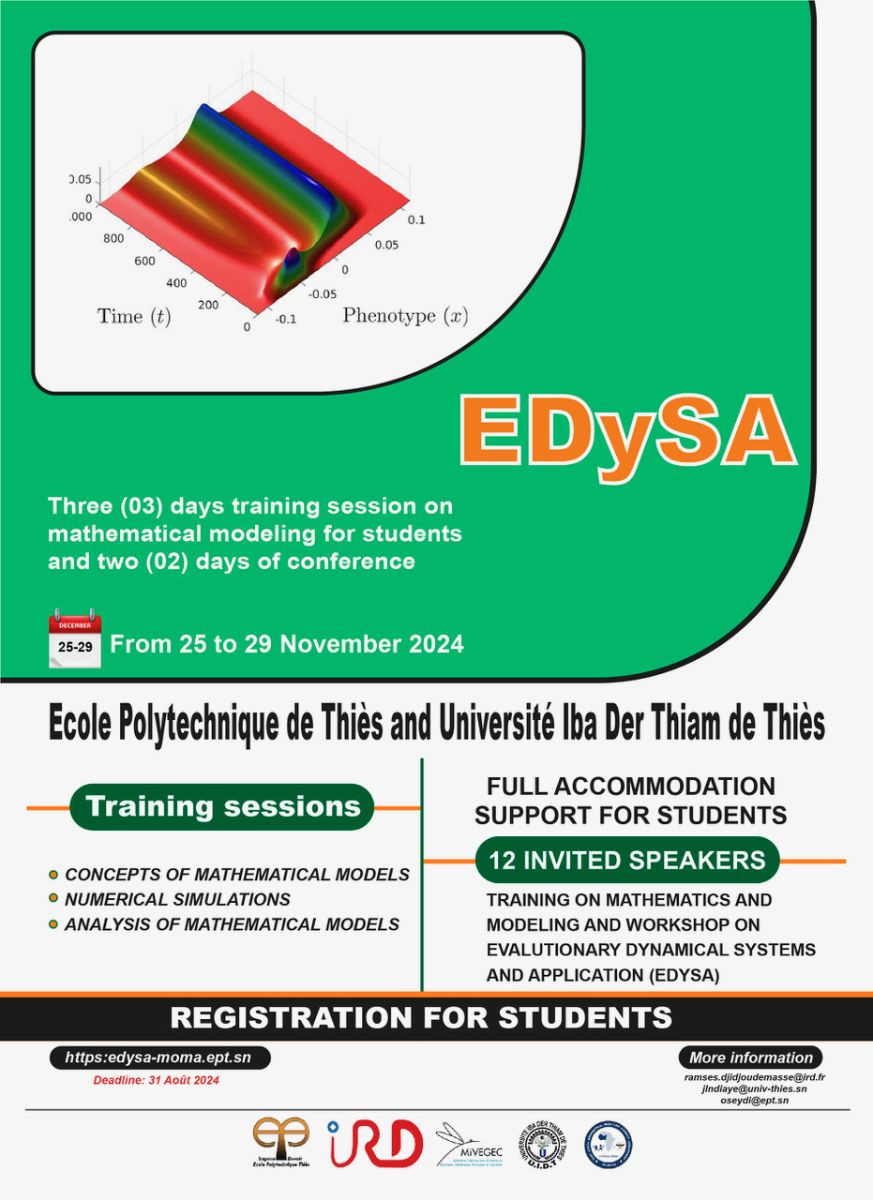
Find More Information and Registration Here
ASTMH Annual Meeting: November 13-17, 2024, New Orleans, USA
Registration is now open!
The ASTMH Annual Meeting is the premier international forum for the exchange of scientific and clinical advances in tropical medicine, hygiene and global health. World-class research findings, clinical updates and topical discussions about the hot-button global issues from the world’s brightest scientific experts and thought leaders are presented over five days.
The scientific program is designed for researchers, professors, government and public health officials, military personnel, travel clinic physicians, practicing physicians in tropical medicine, students, and all healthcare providers working in the fields of tropical medicine, hygiene, and global health. The meeting draws thousands of tropical medicine and global health professionals representing academia, foundations, government, not-for-profit organizations, non-governmental organizations, the private sector, the military, and private practice.
November 13-17, 2024 (Wednesday through Sunday)
New Orleans Ernest N. Morial Convention Center
New Orleans, Louisiana, USA
Find More Information and Registration Here
Genomic Epidemiology of Malaria Conference 2024
Join us at Hinxton Hall Conference Centre, on the world-renowned Wellcome Genome Campus, for talks and networking at Genomic Epidemiology of Malaria conference 2024.Taking place on 18-20 September, this meeting offers a rare opportunity for malaria researchers working in epidemiology, to come together in-person and exchange knowledge. If you are working in human, parasite, or mosquito genetics, this conference has been designed to foster discussion that will benefit your research by exploring the clinical and biological consequences of genome variation in malaria-exposed populations. Discussions and presentations will focus on:
- Spatiotemporal genomic epidemiology of parasites and vectors
- Drug, diagnostic and insecticide resistance
- Genomic studies of species interactions
- Vector and parasites: neglected and emerging species
- Harmonising data standards and analysis resources for public health (panel discussion)
- What next? Priorities for genomic epidemiology of malaria (panel discussion)
Emphasis on how new knowledge and improvements in data standards can be used to treat and control malaria will feature throughout.
Register to participate in the discussion, gain feedback from experts, and build new connections to expand on your current projects.
Registration for your in-person place has expired.
Virtual Registration deadline:10 September 2024
Register for Virtual Genomic Epidemiology of Malaria Here
Courses and Learning Opportunities
The Society for Medical Decision Making to Host 2 Virtual Courses
Infectious Disease Modeling Using Dynamic Compartmental Models in R:
In this course, we focus on a commonly used form of infectious disease models: dynamic compartmental models governed by differential equations.
Our course has two parts:
- providing a brief overview of basic concepts in infectious disease epidemiology – such as the basic reproductive number, contact matrixes, and herd immunity, and
- demonstrating how to translate these concepts into model assumptions and parameters in R.
Subgroups, Working Groups, and Regional Activities
Join the AMMnet Local Chapter Discussion Group
The Best Practices for Starting a Local Chapter Task Force has launched a discussion group for those in the process of starting a local chapter. This is a forum where local chapter leads can share experiences, knowledge and ideas.
Join the discussion by sending an email to info@ammnet.org and request an invitation. The group meets every other month.
Next meeting: October 15, 2024, 12:30 GMT
AMMnet has a policy for formally establishing a Local Chapter!
AMMnet’s Local Chapters bring together modelers, analysts, scientists, public health professionals, partner institutions and civil society, to work together locally to adopt common approaches to improve the use of modeling and analytics for controlling and eliminating malaria whilst reflecting the mission of Global AMMnet.
If you are an AMMnet member and you are interested in establishing a local chapter, please refer the information and guidelines found in the link below.
If you have any questions, considerations or suggestions for establishing local AMMnet chapters, please send us an email at info@ammnet.org.
Local Chapter Information & Guidance
Congratulations to the latest recipients of the AMMnet Small Event Award!
Mali: Organization of advocacy panels to strengthen collaboration between the NMCP and malaria modeling stakeholders for evidencebased decision-making & Formalization of the AMMnet Mali chapter.
MAIGA Mahamane, Malaria Research & Training Center Mali (MRTC-OKD).
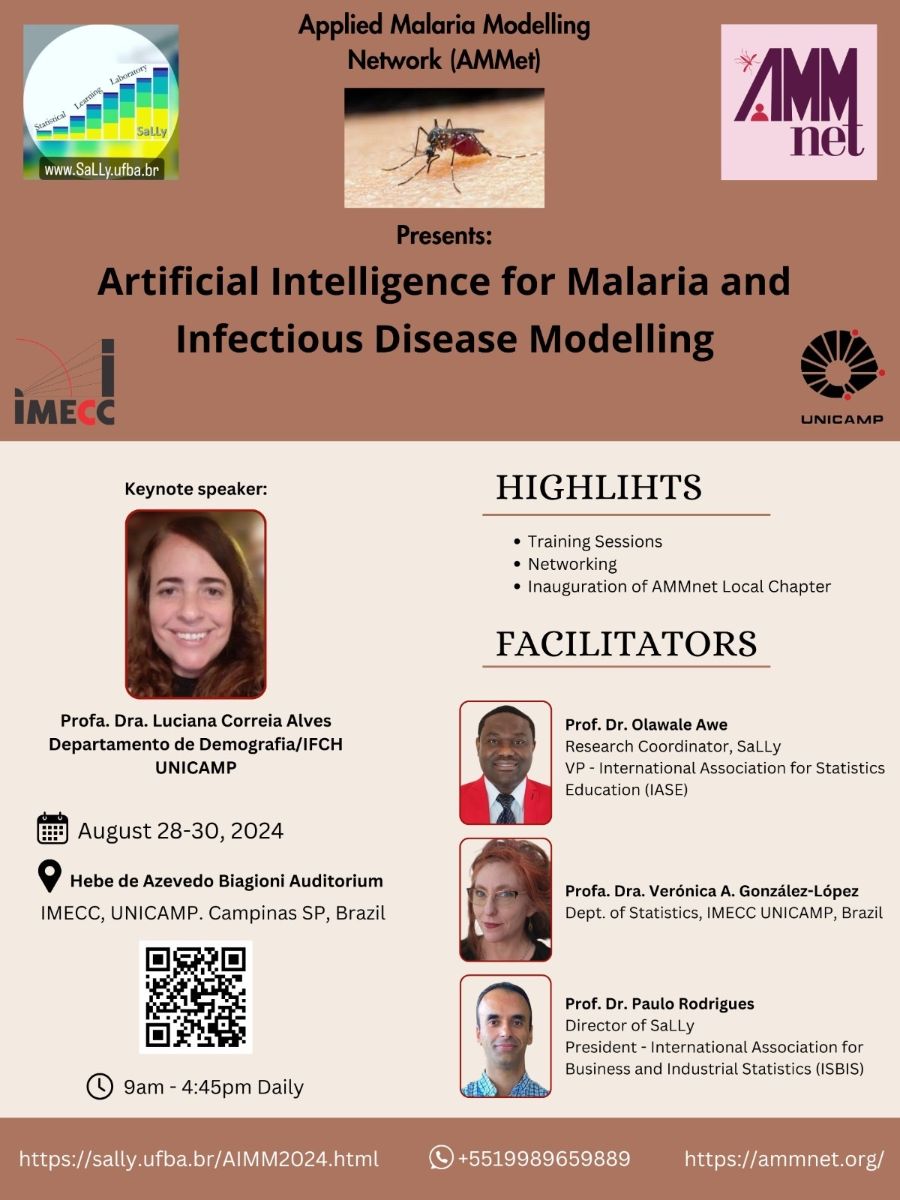
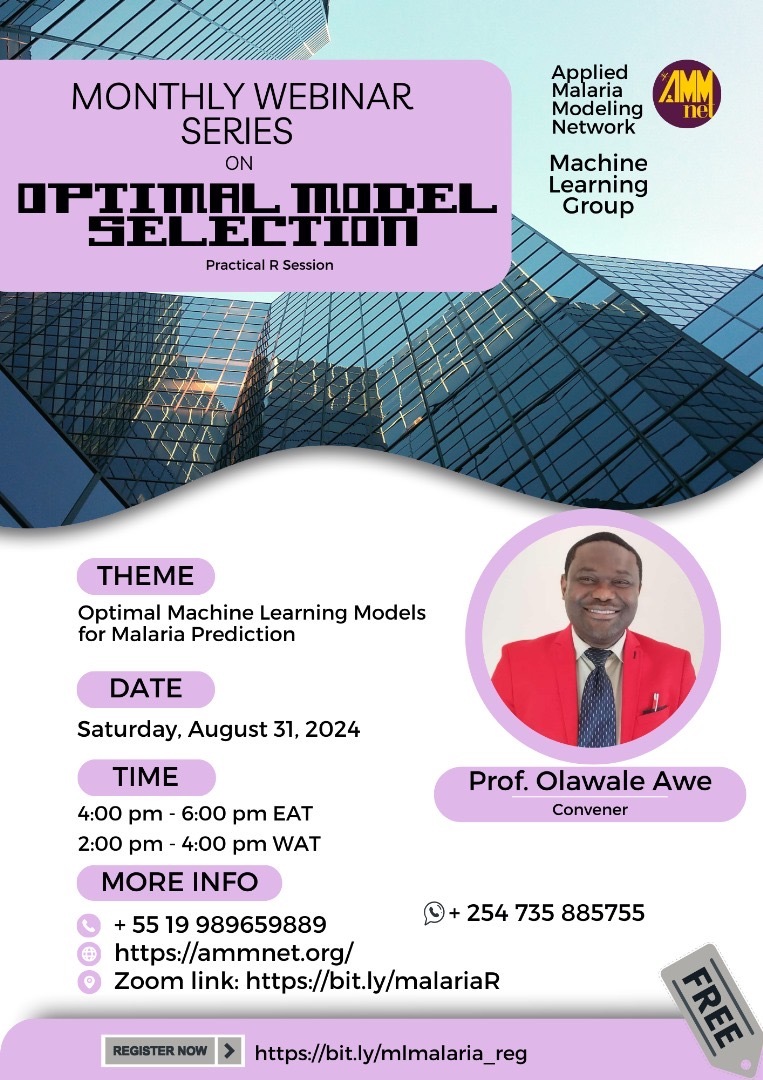
Seminar Recap and Recordings
AMMnet Seminar Series: 2024 August 6, Letitia Onyango | Navigating cultural differences in international research groups
This seminar was given by Letitia Onyango, the Research Project Manager.
Cultural differences can significantly impact international scientific collaborations, presenting both challenges and opportunities for researchers. Engaging with these differences effectively fosters productive partnerships and innovation. International scientific collaborations face significant barriers, including logistical, political, and cultural challenges. These obstacles affect communication, funding, and effective cooperation among researchers globally. In this seminar, Letitia Onyango discussed cultural differences in international research collaborations, emphasizing the importance of understanding logistical, political, and cultural barriers. She highlighted strategies for effective partnerships, including establishing mutual respect and clear communication. The session encouraged active participation and sharing experiences to develop resources for navigating these challenges in global research contexts. Understanding cultural differences and administrative norms is crucial for effective collaboration. This knowledge helps in managing expectations and navigating potential bureaucratic challenges in research projects thus making this seminar a “must-watch” for all.
You may find a recording of the seminar on our website along with recordings from other past special events and seminars.
Recordings in French, English and Portuguese are available.
Board Meeting Recap
The Board met virtually on 22 August 2024.
Present: Jaline, Caitlin, Emilie, Luc, Justin, Cherlynn, Hannah, Manuela, and Emmanuel (joined after vote)
Absent: Antonio (in flight), Susan (meeting conflict)
Secretariat present: Shannon, Sousa, Ida
- Governance Committee revised Terms of Reference to account for separation of Board Chair and Executive Director roles.
- Proposed revisions were sent on August 7 ahead of Board meeting so all members had time to review and comment
- Board voted in favor of incorporating revisions into the ToR
- Membership will receive an email notifying them of the ED/BC divided roles and specific revisions to the ToR.
- After/during September 3 seminar, members will be provided with an anonymous survey with ToR revisions and asked to vote to accept.
- 2024 ASTMH
- AMMnet plans to have an informal event/meetup
- Any suggestions for no-cost venues to meet up?
- Shannon will start a Whatsapp and announce place; Shannon and Jaline to discuss more
- Next annual AMMnet Meeting
- Plan A: Mozambique, timing: June 2025
- Attached to another modeling meeting that has 70% chance of happening
- Need to wait for other decisions. Hope to know more by next Board meeting.
- Plan B: Piggy back on RBM SME WG meeting; would be good with NMCP participation (local resources may be tapped, however, because big meeting)
- Find out when/where this is
- Plan C: Consider a standalone meeting
- In Africa – Nairobi, Kigali, Dakar, Addis
- Would members come if a standalone?
- Could make it a longer meeting, with trainings to attract more participation
- Ahead of PAMCA, September 2025, Benin
- Uncertainty about PAMCA meetings these days, so this is perhaps not a great option
- Plan A: Mozambique, timing: June 2025
- Event planning options
- Option 1: BMGF to help with event planning, business as usual with some modifications (AMMnet will handle registration)
- Consider this option + hiring outside expertise
- May be preferred option for now as it’s much easier
- Option 2: Or apply for a BMGF events grant and we fully plan the next event?
- Subcontract with a local planner / local institution/university – would need to set up administratively
- The local institution would need to be part of the planning task force
- Any risks with this option? We don’t have a relationship with planners; would rely on recommendations from others
- Decide when/where before we decide how to facilitate meeting
- Option 1: BMGF to help with event planning, business as usual with some modifications (AMMnet will handle registration)
- AMMnet Paper
- From the visioning meetings in March / April:
- AMMnet is wildly successful if its framework for connecting people and promoting modeling in policy decisions is globally recognized, locally accessible, and widely applied.
- AMMnet’s purpose is seen as much bigger than malaria — it’s regarded as a sustainable paradigm for effective collaboration and community-building in talking major public health issues.
- We can write a paper describing the history and experience of AMMnet
- Objective is to share with others our successes and learnings in building our community of practice equitably
- Could be an essay at Plos GPH (if we get an editor to invite it)
- Interest from Board, and individual Board members to join a writing team
- In person paper skeleton development session during IDM conference
- Cherlynn, Caitlin, Emilie, Jaline and Hannah
- We will ask all Board members for feedback
- Next Steps: schedule a hybrid meeting overlapping the IDM symposium in Seattle (morning)
- Shannon will identify a common date and time
- Caitlin will find a room
- Cherlynn will join virtually; Emilie TBD
- From the visioning meetings in March / April:
- External comms with AMMnet name
- At this point, no way to control all mentions of AMMnet name, especially with local chapters and their activities
- Individual AMMnet members will have diverse opinions on many things
- All Board members should be talking up AMMnet at every opportunity
- We can do our best to distinguish between what we say as AMMnet leaders and what we say as private citizens, but there is no way to make 100% sure that no one is confused
- More cost than benefit to trying to keep a tighter rein on use of the AMMnet name
- Next steps
- Emilie will draft initial version of guidance for speaking as AMMnet and use of the AMMnet name by the next Board meeting (would like a reminder)
- Next meeting: 15 October (will need to move as Jaline is in flight)
- Board will send Secretariat any date and time restrictions; Secretariat will find a time

